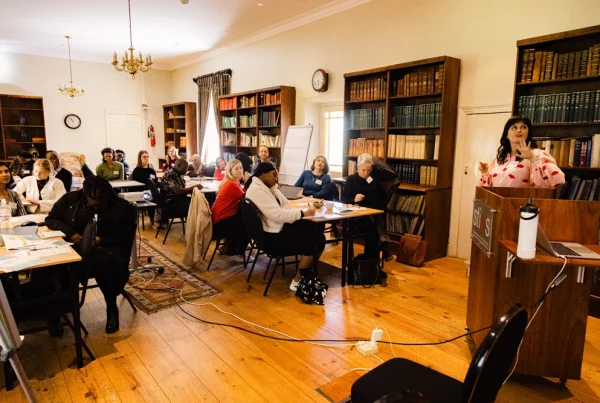In 2016, RESEP published the “Binding Constraints” report discussing the importance of reading for meaning by grade 3. Three years later, President Cyril Ramaphosa echoes this sentiment in his State of the Nation (SONA) address in 2019.
Quote from RESEP’s “Binding Constraints” report:
“… the central priority of the Department of Basic Education should be the following: “Every child in South Africa must learn to read for meaning by the end of Grade 3.” This goal is measurable, realisable and easy to understand, both by parents and policy-makers. Since almost all future learning will depend on this fundamental understanding of the relation between print and spoken language, this is arguably the most important skill that children learn in primary school. Failure to achieve this outcome makes it highly unlikely for many children that they will ever be able to achieve strong cognitive skills at higher grades, given their weak foundations.”
Quote from President Ramaphosa’s 2019 State of the Nation Address (SONA):
“Let us agree, as a nation and as a people united in our aspirations, that within the next 10 years we will have made progress in tackling poverty, inequality and unemployment, where:
– No person in South Africa will go hungry.
– Our economy will grow at a much faster rate than our population.
– Two million more young people will be in employment.
– Our schools will have better educational outcomes and every 10-year old will be able to read for meaning.
– Violent crime will be halved.
Let us make these commitments now – to ourselves and to each other – knowing that they will stretch our resources and capabilities, but understanding that if we achieve these five goals, we will have fundamentally transformed our society.”A further quote from the same speech:
“If we are to ensure that within the next decade, every 10-year old will be able to read for meaning, we will need to mobilise the entire nation behind a massive reading campaign.“Early reading is the basic foundation that determines a child’s educational progress, through school, through higher education and into the workplace. All other interventions – from the work being done to improve the quality of basic education to the provision of free higher education for the poor, from our investment in TVET colleges to the expansion of workplace learning – will not produce the results we need unless we first ensure that children can read.”
[1] Servaas van der Berg, Nicholas Spaull, Gabrielle Wills, Martin Gustafsson & Janeli Kotzé. 2016. Identifying binding constraints in education. Synthesis report for the Programme to Support Pro-Poor Policy Development (PSPPD). Stellenbosch. Available at: https://resep.sun.ac.za/category/research-outputs/reports/
[2] Ramaphosa, C. 2019. President Cyril Ramaphosa: State of the Nation Address 2019. 20 June 2019. South African Government. Available at: https://www.gov.za/speeches/2SONA2019






